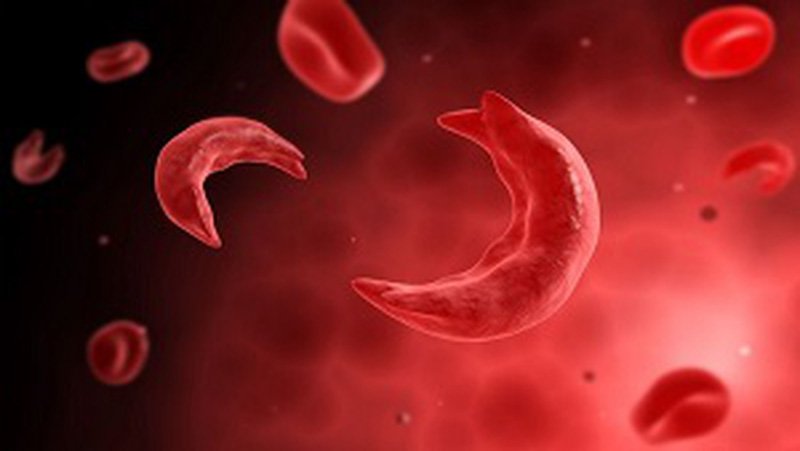Basic knowledge about chorionic villus biopsies
The article was professionally consulted by Specialist Doctor I Le Hong Lien - Department of Obstetrics and Gynecology - Vinmec Central Park International General Hospital.
A chorionic villus biopsy is a technique often ordered by doctors to check for fetal abnormalities after fetal malformation screening tests indicate that the fetus is at high risk for genetic defects. What is a chorionic villus biopsy? When is a chorionic villus biopsy? The possible risks of chorionic villus biopsies and some other questions will be answered in the following article.
1. A chorionic villus biopsy is a technique to help check for fetal abnormalities
Placenta are small, finger-shaped tissues in the placenta. Because the genetic material in the placenta is similar to the cells that are developing in the fetus's body, a chorionic villus biopsy should be performed, and a sample of chorionic villus cells will be sent for testing. The test results will help doctors determine if the fetus has certain birth defects. Some of the pathologies that a placental biopsy can detect include: Down syndrome, Edward's syndrome, Duchnene myasthenia gravis, thalassemia, antitrypsin deficiency, X chromosome syndrome, cystic fibrosis.
.
.
2. Who needs a chorionic villus biopsy?
A chorionic villus biopsy is not a widely performed procedure. Only women who are at high risk of having babies with a genetic disorder should have this procedure. Indicated cases of chorionic villus sampling are:
Previous fetal malformation screening tests such as triple test, combined test, and nuchal translucency measurement have shown that the fetus has a high risk of congenital malformations. transmission. The results of fetal ultrasound detected a number of abnormalities such as heart defects, abnormal kidney structure, dilated ventricles, cleft lip, cleft palate,... Women older than 35 years old because of the proportion of these mothers with have a higher risk of giving birth to babies with genetic abnormalities such as Down syndrome. You have a history of having a baby with Down syndrome or previous genetic disorders. The spouse is suffering from genetic diseases such as cystic fibrosis, sickle cell anemia, ..
Previous fetal malformation screening tests such as triple test, combined test, and nuchal translucency measurement have shown that the fetus has a high risk of congenital malformations. transmission. The results of fetal ultrasound detected a number of abnormalities such as heart defects, abnormal kidney structure, dilated ventricles, cleft lip, cleft palate,... Women older than 35 years old because of the proportion of these mothers with have a higher risk of giving birth to babies with genetic abnormalities such as Down syndrome. You have a history of having a baby with Down syndrome or previous genetic disorders. The spouse is suffering from genetic diseases such as cystic fibrosis, sickle cell anemia, ..

Thủ thuật được chỉ định trong trường hợp người vợ hoặc chồng mắc bệnh di truyền như thiếu máu hồng cầu hình liềm
3. When is the chorionic villus biopsy?
A chorionic villus biopsy is usually done at 10-12 weeks of pregnancy, which is an advantage of a placental biopsy over amniocentesis (done after 15 weeks), a procedure also often indicated to check for malformations. fetus. Taking the test at an early stage, if the results are not as desired, the parents will have time to think and decide whether to continue or stop the pregnancy.
4. How does the chorionic villus biopsy process take place?
The mother will be given local anesthesia to relieve pain and stress, the doctor will use a technical catheter (catheter) inserted into the vagina through the mother's cervix and aspirate a sample of the placenta for analysis.
Chorionic villus sampling can also be obtained transabdominal by inserting a needle through the abdominal wall, through the uterus, and withdrawing some of the placental tissue. The fetal heart rate is continuously monitored during the biopsy. The process of chorionic villus sampling takes about 30 minutes, during the procedure, you will feel pain in the affected area or mild cramping.
Usually after 7-10 days the results of chromosomal analysis will be available and after 24 weeks the results of genetic disorders will be available.
Chorionic villus sampling can also be obtained transabdominal by inserting a needle through the abdominal wall, through the uterus, and withdrawing some of the placental tissue. The fetal heart rate is continuously monitored during the biopsy. The process of chorionic villus sampling takes about 30 minutes, during the procedure, you will feel pain in the affected area or mild cramping.
Usually after 7-10 days the results of chromosomal analysis will be available and after 24 weeks the results of genetic disorders will be available.
5. Notes after chorionic villus biopsies
After the chorionic villus biopsy, the woman can go home without needing to be hospitalized for monitoring. When returning home, pregnant women need a lot of time to rest, avoid walking a lot, carrying, heavy labor, and avoiding sex for about two weeks. If there are symptoms of fever, severe abdominal pain, amniotic fluid, vaginal bleeding, vaginal redness, increased cramps, the pregnant woman should quickly go to the hospital for a timely examination.
A placental biopsy can detect many birth defects but does not detect neural tube defects, which are abnormalities that affect the brain and spine such as spina bifida. If fetal malformation screening shows that your baby is at high risk for a neural tube defect, your doctor may recommend an amniocentesis for more accurate results.
A placental biopsy can detect many birth defects but does not detect neural tube defects, which are abnormalities that affect the brain and spine such as spina bifida. If fetal malformation screening shows that your baby is at high risk for a neural tube defect, your doctor may recommend an amniocentesis for more accurate results.
6. Possible risks of chorionic villus biopsies

Sinh thiết gai nhau có thể gây nguy cơ sẩy thai với tỉ lệ 1/500
A chorionic villus biopsy carries a risk of miscarriage with a 1 in 500 chance, which means one in 500 women who have a chorionic villus biopsies will have a miscarriage. Some studies have found that chorionic villus biopsies can cause birth defects in the baby's arms and legs, but this risk only occurs if the procedure is performed at a very young age (< 9 weeks). In addition, chorionic villus sampling can cause vaginal bleeding, amniotic fluid, and infection, but the incidence of these complications is very low.
For parents, perhaps the most worrying thing is that their child is born with birth defects and does not develop like normal children. If the test results after a placental biopsy show that the baby has birth defects, the doctor will advise and explain more information and the parents will be the ones to decide whether to terminate the pregnancy or continue to keep the pregnancy. pregnant. If parents do not want to terminate the pregnancy, parents must prepare well mentally, learn carefully about the disease that their child is at risk of contracting, special care requirements, and medical professionals who can be contacted. Should join community groups of parents who have had children with the disease to get more information and support when needed.
In addition to the biopsy of the placenta, in order to get accurate fetal malformation screening results while ensuring safety for mother and baby, the International General Hospital has applied the Non-invasive prenatal screening method. encroachment NIPT - considered a safe "key" to help decode fetal malformations.
The team of genetic experts at Vinmec will provide professional advice to pregnant women before making a decision whether to have NIPT testing. Vinmec Gen Technology Center is equipped with modern machinery for accurate and safe results.
For parents, perhaps the most worrying thing is that their child is born with birth defects and does not develop like normal children. If the test results after a placental biopsy show that the baby has birth defects, the doctor will advise and explain more information and the parents will be the ones to decide whether to terminate the pregnancy or continue to keep the pregnancy. pregnant. If parents do not want to terminate the pregnancy, parents must prepare well mentally, learn carefully about the disease that their child is at risk of contracting, special care requirements, and medical professionals who can be contacted. Should join community groups of parents who have had children with the disease to get more information and support when needed.
In addition to the biopsy of the placenta, in order to get accurate fetal malformation screening results while ensuring safety for mother and baby, the International General Hospital has applied the Non-invasive prenatal screening method. encroachment NIPT - considered a safe "key" to help decode fetal malformations.
The team of genetic experts at Vinmec will provide professional advice to pregnant women before making a decision whether to have NIPT testing. Vinmec Gen Technology Center is equipped with modern machinery for accurate and safe results.
Để đặt lịch khám tại viện, Quý khách vui lòng bấm số HOTLINE hoặc đặt lịch trực tiếp TẠI ĐÂY. Tải và đặt lịch khám tự động trên ứng dụng MyVinmec để quản lý, theo dõi lịch và đặt hẹn mọi lúc mọi nơi ngay trên ứng dụng.






